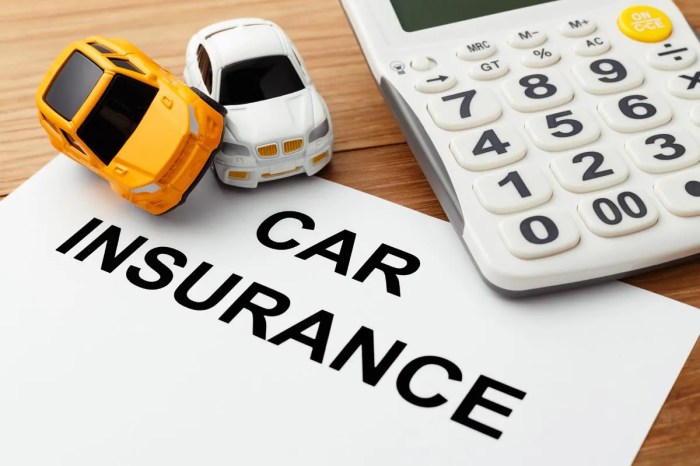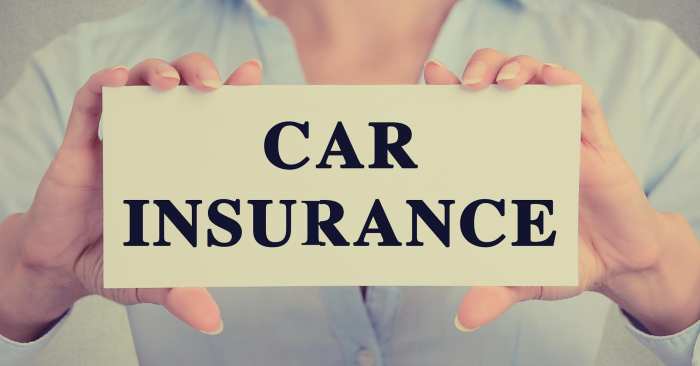Get a free auto quote and unlock the potential to save significantly on your car insurance. In today’s competitive market, multiple insurance providers offer free quotes, allowing you to compare prices and coverage options. By taking advantage of this opportunity, you can secure the best possible rates and ensure you’re not overpaying for the protection you need.
Table of Contents
Understanding the factors that influence auto insurance premiums is crucial to finding the right coverage at an affordable price. Factors like your driving history, age, vehicle type, and location all play a role in determining your insurance rate. Additionally, choosing the right coverage options, such as liability, collision, and comprehensive, can significantly impact your premiums.
The Value of Free Auto Quotes
Getting multiple free auto quotes is a crucial step in finding the best insurance coverage at the most affordable price. By comparing quotes from different insurance providers, you can ensure that you’re not overpaying for your auto insurance.
Potential Cost Savings
Comparing auto insurance quotes can lead to significant cost savings. Insurance companies use various factors to determine your premium, such as your driving history, age, location, and the type of vehicle you drive. By getting quotes from multiple companies, you can find the one that offers the most competitive rates based on your specific circumstances.
“A recent study by the National Association of Insurance Commissioners found that drivers who compared quotes saved an average of $487 per year on their auto insurance.”
Real-World Examples, Get a free auto quote
Many individuals have benefited from getting multiple auto quotes. For example, Sarah, a young driver in California, was paying a high premium for her car insurance. After comparing quotes from several companies, she found a policy that was $200 cheaper per year. Similarly, John, a middle-aged driver in Texas, was able to reduce his premium by $300 per year by switching to a different insurance provider.
Understanding Auto Insurance Quotes
Getting an auto insurance quote can feel overwhelming, especially when you’re presented with a list of numbers and terms you may not fully understand. It’s important to remember that auto insurance quotes are personalized based on your individual circumstances and driving history. This means that the price you see is not necessarily the price someone else would get.
Factors Influencing Auto Insurance Premiums
Auto insurance premiums are determined by a complex formula that takes into account various factors, which are used to assess your risk as a driver. Here are some key factors that insurers consider:
- Driving History: This includes your past accidents, traffic violations, and driving record. A clean record usually translates into lower premiums.
- Vehicle Information: The make, model, year, and safety features of your vehicle all play a role. Newer, safer vehicles often have lower premiums.
- Location: Your address impacts your premiums. Areas with higher crime rates or traffic congestion tend to have higher insurance rates.
- Age and Gender: Younger and inexperienced drivers typically pay higher premiums, while older drivers with more experience often enjoy lower rates.
- Credit Score: Believe it or not, your credit score can influence your auto insurance premiums. Insurers often use this as an indicator of your financial responsibility.
- Coverage Levels: The amount and types of coverage you choose directly impact your premiums. More comprehensive coverage means higher premiums.
- Driving Habits: Your driving habits, such as the number of miles you drive annually, can affect your premium.
Coverage Options
Auto insurance policies offer a range of coverage options to protect you and your vehicle in case of accidents or other incidents. Understanding these options is crucial to selecting the right coverage for your needs:
- Liability Coverage: This covers damages to other people and property if you are at fault in an accident. It includes:
- Bodily Injury Liability: Covers medical expenses and other damages for injuries to other people in an accident you cause.
- Property Damage Liability: Covers damages to other people’s property, such as their vehicle, if you cause an accident.
- Collision Coverage: This covers repairs or replacement of your vehicle if it’s damaged in an accident, regardless of fault.
- Comprehensive Coverage: This protects your vehicle from damage caused by events other than accidents, such as theft, vandalism, or natural disasters.
- Uninsured/Underinsured Motorist Coverage: This protects you if you’re involved in an accident with a driver who has no insurance or insufficient insurance.
- Personal Injury Protection (PIP): This covers medical expenses, lost wages, and other related costs for you and your passengers, regardless of fault.
Deductibles and Coverage Limits
Deductibles and coverage limits are essential parts of an auto insurance policy, and understanding them is crucial for making informed decisions:
- Deductible: The amount you pay out of pocket before your insurance coverage kicks in. A higher deductible typically means lower premiums, while a lower deductible results in higher premiums.
- Coverage Limits: The maximum amount your insurance company will pay for a covered claim. Higher limits generally mean higher premiums.
Where to Get Free Auto Quotes

Finding the best auto insurance rates often involves comparing quotes from multiple providers. Fortunately, there are various resources available to help you get free auto quotes quickly and easily. Here’s a breakdown of the most common options.
Online Insurance Comparison Websites
Online insurance comparison websites offer a convenient way to compare quotes from multiple insurers simultaneously. These platforms gather your information once and then send it to their network of insurance providers. You can then review and compare the quotes side-by-side.
This process streamlines the quoting process and saves you time and effort.
Here are some reputable online insurance comparison websites:
- QuoteWizard: QuoteWizard compares quotes from over 100 insurance companies, allowing you to find the best rates based on your specific needs. They offer a user-friendly interface and a wide range of coverage options.
- Insurify: Insurify provides personalized auto insurance quotes from over 20 top-rated insurance companies. They leverage their extensive network of providers to ensure you get competitive rates.
- The Zebra: The Zebra offers a comprehensive comparison platform that lets you compare quotes from over 100 insurance companies. Their platform is known for its user-friendly interface and detailed coverage breakdowns.
- Policygenius: Policygenius provides a simple and efficient way to compare auto insurance quotes from multiple providers. They offer a personalized approach and provide insights to help you make informed decisions.
Insurance Brokers
Insurance brokers act as intermediaries between you and insurance companies. They can help you compare quotes from multiple insurers and find the best coverage for your needs. Brokers are independent and not affiliated with any specific insurance company, allowing them to provide unbiased recommendations.
You can find insurance brokers through online directories or by contacting your local chamber of commerce.
Local Insurance Agencies
Local insurance agencies offer personalized service and can provide tailored quotes based on your specific needs. They are often familiar with local driving conditions and can provide insights into the best coverage options for your area.
You can find local insurance agencies by searching online or by asking for recommendations from friends or family.
Tips for Getting the Best Quote
Getting the best auto insurance quote involves a combination of smart strategies and proactive steps. By understanding how insurance premiums are calculated and taking the necessary actions, you can significantly reduce your insurance costs.
Negotiating Lower Premiums
Negotiating lower premiums is an art that requires research, preparation, and assertiveness. Here are some tips to help you get the best deal:
- Shop Around: Obtain quotes from multiple insurance companies to compare prices and coverage options. This allows you to identify the best value for your needs. For example, you might find that a smaller, regional insurer offers lower premiums than a larger, national company.
- Bundle Your Policies: Combining your auto insurance with other policies, such as homeowners or renters insurance, can often result in discounts. Insurance companies often offer bundled discounts to encourage customers to consolidate their policies.
- Ask About Discounts: Many insurance companies offer discounts for various factors, such as good driving records, safety features in your vehicle, and memberships in certain organizations. Be sure to inquire about these discounts and provide the necessary documentation to qualify.
- Consider Increasing Your Deductible: A higher deductible means you pay more out of pocket in the event of an accident, but it can lower your premium. If you are comfortable with a higher deductible, it can significantly reduce your insurance costs.
- Negotiate After a Renewal: When your policy is up for renewal, take the opportunity to negotiate a lower premium. If you have a good driving record and have made no claims, you might be able to leverage your history to secure a better rate.
Improving Your Driving Record
Your driving record is a significant factor in determining your auto insurance premiums. A clean driving record translates into lower premiums.
- Avoid Traffic Violations: Speeding tickets, reckless driving, and other traffic violations can significantly increase your insurance rates. Drive safely and obey all traffic laws to maintain a clean driving record.
- Take a Defensive Driving Course: Completing a defensive driving course can demonstrate your commitment to safe driving and may qualify you for discounts. These courses teach you safe driving techniques and strategies to avoid accidents.
- Review Your Driving Record: Regularly check your driving record for any errors or inaccuracies. If you find any mistakes, you can take steps to have them corrected.
Impact of Vehicle Safety Features
Modern vehicles come equipped with various safety features that can reduce the risk of accidents and injuries. These features can also impact your insurance premiums.
- Anti-lock Braking System (ABS): ABS helps prevent wheel lockup during braking, improving vehicle control and reducing the risk of accidents. Many insurance companies offer discounts for vehicles with ABS.
- Electronic Stability Control (ESC): ESC helps maintain vehicle stability during maneuvers, reducing the risk of skidding and rollovers. Vehicles with ESC often qualify for lower insurance premiums.
- Airbags: Airbags provide a safety cushion in the event of an accident, reducing the risk of serious injuries. Insurance companies typically offer discounts for vehicles with multiple airbags.
- Backup Camera: Backup cameras help prevent accidents while backing up, particularly when visibility is limited. Some insurers offer discounts for vehicles with backup cameras.
Common Mistakes to Avoid
Getting the cheapest auto insurance quote might seem like the best way to save money, but it’s important to consider the bigger picture. Choosing the right insurance policy involves more than just finding the lowest price. Here are some common mistakes to avoid when searching for a free auto insurance quote:
Relying Solely on the Cheapest Quote
It’s tempting to go for the lowest price, but focusing solely on the cheapest quote can lead to inadequate coverage in case of an accident.
- Insufficient Coverage: A cheap quote might mean limited coverage for accidents, medical expenses, or property damage, leaving you financially vulnerable in the event of a claim.
- Hidden Costs: Lower premiums might come with higher deductibles or limited coverage options, resulting in higher out-of-pocket expenses in the long run.
- Reputational Risk: Some insurers with lower premiums might have a history of slow claim processing or poor customer service, leaving you frustrated and dissatisfied.
Ignoring Policy Details
Don’t just skim the surface. Reading the policy details thoroughly is crucial to understanding the coverage you’re getting.
- Coverage Limits: Pay attention to the maximum amount your insurer will pay for different types of claims, such as liability, medical expenses, or collision damage.
- Deductibles: Understand the amount you’ll have to pay out of pocket before your insurance kicks in for each type of claim.
- Exclusions: Be aware of specific events or situations not covered by your policy, such as driving under the influence or using your vehicle for commercial purposes.
Providing Inaccurate Information
Being truthful and accurate with your information is vital. Providing false information to insurers can have serious consequences.
- Policy Cancellation: If an insurer discovers you provided inaccurate information, your policy could be canceled, leaving you without coverage.
- Claim Denial: Inaccurate information can be used as grounds for denying a claim, leaving you responsible for all expenses.
- Legal Penalties: In some cases, providing false information to insurers could result in legal penalties or fines.
Factors Affecting Insurance Rates

Many factors influence your car insurance rates, and understanding them can help you get the best possible deal. It’s not just about your driving record, but also about your car, where you live, and even your age.
Impact of Various Factors on Insurance Premiums
| Factor | Impact on Premiums |
|---|---|
| Age | Younger drivers typically pay higher premiums due to their lack of experience and higher risk of accidents. As drivers age and gain experience, premiums usually decrease. |
| Driving History | A clean driving record with no accidents or traffic violations results in lower premiums. Conversely, accidents, speeding tickets, or DUI convictions significantly increase rates. |
| Vehicle Type | The type of vehicle you drive plays a major role in determining your insurance costs. Sports cars, luxury vehicles, and high-performance cars are generally more expensive to insure due to their higher repair costs and increased risk of accidents. |
| Location | Your location affects your insurance rates due to factors such as population density, traffic congestion, and crime rates. Areas with higher accident rates and crime tend to have higher insurance premiums. |
| Coverage Levels | The level of coverage you choose directly impacts your insurance costs. Comprehensive and collision coverage, while providing more protection, also lead to higher premiums. |
Choosing the Right Coverage
Choosing the right auto insurance coverage is crucial to protect yourself financially in case of an accident or other unforeseen events. Understanding the different types of coverage and their benefits is essential for making an informed decision.
Liability Coverage
Liability coverage protects you financially if you are at fault in an accident that causes damage to another person’s property or injuries to another person. This coverage pays for the other driver’s medical expenses, lost wages, and property damage. Liability coverage is usually divided into two parts: bodily injury liability and property damage liability.
- Bodily injury liability covers medical expenses, lost wages, and pain and suffering for the other driver and passengers in their vehicle.
- Property damage liability covers the cost of repairs or replacement of the other driver’s vehicle and any other property damaged in the accident.
For example, if you are at fault in an accident that causes $10,000 in damage to the other driver’s car and $5,000 in medical expenses for the other driver, your liability coverage will pay for these expenses.
Collision Coverage
Collision coverage pays for repairs or replacement of your vehicle if it is damaged in an accident, regardless of who is at fault. This coverage is optional, but it is highly recommended if you have a car loan or lease.
For example, if you are in an accident and your car is totaled, collision coverage will pay the actual cash value of your car, minus your deductible.
Comprehensive Coverage
Comprehensive coverage pays for repairs or replacement of your vehicle if it is damaged by something other than a collision, such as theft, vandalism, fire, or hail. This coverage is also optional, but it is a good idea to have it if you have a new car or a car with a high value.
For example, if your car is stolen and never recovered, comprehensive coverage will pay you the actual cash value of your car, minus your deductible.
Decision-Making Process
The decision-making process for choosing the right auto insurance coverage involves considering several factors:
- Your financial situation: Consider your budget and how much you can afford to pay in premiums.
- Your driving record: A clean driving record may qualify you for lower premiums.
- Your car’s value: If your car is new or has a high value, you may want to consider comprehensive coverage.
- Your location: The cost of auto insurance varies depending on your location.
- Your driving habits: If you drive frequently or in high-risk areas, you may need higher coverage limits.
A flowchart can help you visualize the decision-making process:
[Flowchart Illustration]
Understanding Deductibles

Your auto insurance deductible is the amount of money you agree to pay out-of-pocket before your insurance company starts covering your claim. It’s essentially the threshold you need to reach before your insurance kicks in. The higher your deductible, the lower your monthly premium will be, and vice versa.
The Relationship Between Deductibles and Premiums
The relationship between deductibles and premiums is inverse. This means that when one goes up, the other goes down. Think of it like a seesaw: If you push down on one end, the other end goes up. The same applies to your deductible and premium.
Higher Deductible = Lower Premium
Lower Deductible = Higher Premium
The Pros and Cons of Choosing Higher or Lower Deductibles
Choosing a deductible is a balancing act between your financial risk and your monthly premium. Here’s a breakdown of the pros and cons of choosing higher or lower deductibles:
Higher Deductibles
- Pros:
- Lower monthly premiums
- Potential for significant savings over time
- Cons:
- You’ll have to pay more out-of-pocket in case of an accident
- You may need to have a larger emergency fund to cover potential costs
Lower Deductibles
- Pros:
- You’ll pay less out-of-pocket in case of an accident
- You’ll have more financial peace of mind
- Cons:
- Higher monthly premiums
- You’ll pay more over time, even if you don’t have an accident
Deductible Options and Corresponding Premium Changes
Here’s a table that illustrates how different deductible options can impact your premium:
| Deductible | Estimated Premium Change |
|---|---|
| $250 | +10% |
| $500 | +5% |
| $1000 | 0% |
| $1500 | -5% |
| $2000 | -10% |
Additional Resources: Get A Free Auto Quote
Finding the right auto insurance can be a complex process, but it doesn’t have to be overwhelming. There are a wealth of resources available to help you navigate the world of auto insurance and make informed decisions.
Government Websites
Government websites offer valuable information about auto insurance regulations, consumer rights, and resources.
- The National Highway Traffic Safety Administration (NHTSA) provides information on vehicle safety, recalls, and crash statistics. https://www.nhtsa.gov/
- The Federal Trade Commission (FTC) offers guidance on consumer protection, including information on insurance scams and unfair practices. https://www.ftc.gov/
- The Department of Insurance in your state can provide information about insurance regulations, licensing requirements, and consumer complaints. You can find your state’s department of insurance website through the National Association of Insurance Commissioners (NAIC). https://www.naic.org/
Armed with knowledge and the right tools, you can navigate the world of auto insurance confidently and secure the best possible coverage at a price that fits your budget. By taking the time to compare quotes, understand your options, and avoid common mistakes, you can ensure you’re getting the most value for your money. Remember, finding the right auto insurance is not about settling for the cheapest option but finding the best balance between cost and protection.
Getting a free auto quote is a great way to compare prices and find the best coverage for your needs. While you’re looking for deals, don’t forget to check out humana dental for affordable dental care. Just like getting a free auto quote can save you money on insurance, Humana Dental can help you save on your dental expenses.


